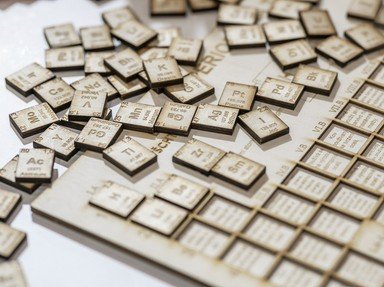Quiz Answer Key and Fun Facts
1. Hydrogen has 3 isotopes. Which of the following is NOT one of them?
2. Hydrogen is categorized under which block in the periodic table?
3. Choose the INCORRECT statement.
4. Hydrogen gas can be produced by mixing active metal and strong acid.
5. In this process, hydrogen gas is added to unsaturated compounds with the use of a catalyst such as platinum to produce saturated compounds. This process is called?
6. Hydrogen gas can be produced from the process of electrolysis of water. The ratio of the volume of hydrogen gas to oxygen gas produced is?
7. Hydrogen bonds occur in all of the following molecules, EXCEPT?
8. Hydrogen is important in the study of quantum mechanics, because it is the only element where its energy level can be solved by which of the following equations?
9. Today, balloons are filled with helium gas, instead of hydrogen gas, although helium is much heavier than hydrogen. Why is it so?
10. By using a particle accelerator, the CERN (European Organization for Nuclear Research) laboratory in Geneva, Switzerland was the first to produce antihydrogen.
Source: Author
Matthew_07
This quiz was reviewed by FunTrivia editor
crisw before going online.
Any errors found in FunTrivia content are routinely corrected through our feedback system.


